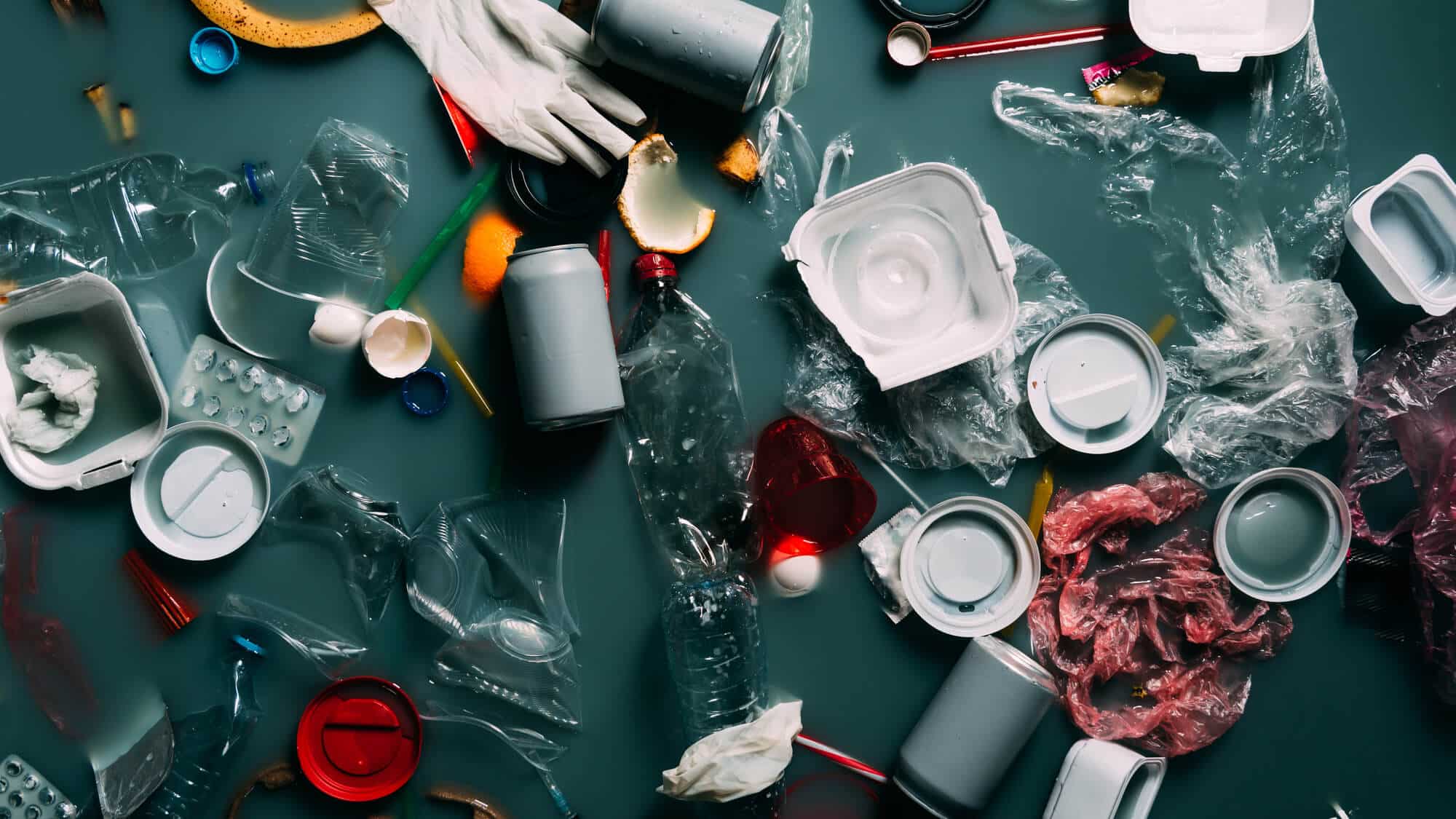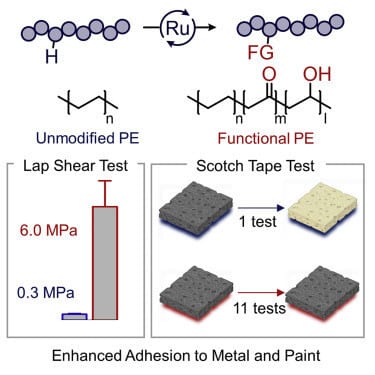A new development makes it possible to turn plastic bags from polluting waste into glue - is this an idea that will succeed in reducing the ongoing environmental damage of single-use plastic?
By Simi Shauer, Angle - Science and Environment News Agency

In January 2021, the Ministry of Environmental Protection announced that it is promoting, in cooperation with the Nature and Parks Authority, Prohibition on the introduction of disposable utensils to the nature reserves and national parks. At about the same time, the Coca-Cola World Company issued a statement that it Stop using plastic in its beverage bottles until 2030, and that its products will be sold in paper bottles, which are currently undergoing a series of tests and experiments.
If both the Israeli government and one of the largest companies in the world (and a heavy producer of plastic products, of course) already understand that the use of single-use plastic is one of the most significant environmental challenges of recent times, then it is probably time to act. Just to illustrate, according to expert estimates until the year 2050 The weight of plastic in the oceans may exceed the weight of fish Among them - this is if there is no significant change in the plastic production and handling policy.
Could a new American development that proposes to turn plastic bags into glue provide a creative solution to help reduce the amount of plastic waste?
One of the biggest problems in the field of plastic waste treatment is that the process of recycling the material is expensive, and it requires energy, water and transportation, which have a significant environmental cost. On the other hand, the production of new plastics from oil remains cheap and available. "There are products, such as plastic beams that are used for camping, that can be made from different types of plastic that are fused together - whether they are packaging for cleaning materials, cottage cups, or pipe parts," explains Prof. Ophira Ilon from the Shmuel Neman Institute at the Technion and from the Department of Natural and Environmental Freight Management at the University of Haifa . "However, for the production of many other products, such as recycled ketchup bottles, it is possible to use only a uniform raw material. Because of this, it is necessary to separate the waste according to the different types of plastic, which makes the process more expensive."
The plastic bags are usually made from polyethylene, a type of plastic that is About a third of all plastic which is produced in the world. According to Elon, the process of recycling the polyethylene is not economically viable. "Polyethylene bags are an inferior raw material, which the recycling process will make even more inferior," she says. "Therefore, almost no bags are recycled these days."
From hard plastic to sticky material
בThe new study, recently published in the journal Chem, the researchers propose to turn plastic waste into a valuable product - glue - through a chemical process they developed, which causes polyethylene to function as glue that sticks to metal. As part of the process, the researchers added hydroxyl groups to the polyethylene: an oxygen atom and a hydrogen atom that are linked to each other and that bind to other atoms - such as carbon, whose thousands of atoms that are connected in a chain make up a polymer like polyethylene. For this they used a catalyst (catalyst, a substance capable of speeding up chemical reactions) based on ruthenium - a hard metal that is resistant to high temperatures (such as those where the plastic is melted as part of its transformation into glue).
During the development of the method, the researchers also discovered that adding a small amount of alcohol to the material increases its stickiness 20 times. The researchers made chemical changes in less than 10 percent of the polyethylene polymer - but this was enough to turn it from a hard plastic into a sticky material.
According to the researchers, turning the polyethylene into a sticky material does not harm its other properties that are useful in industry, such as the ability to process it, its thermal stability and its mechanical properties. Unlike regular polyethylene, the upgraded material can even be painted, using water-based latex paint.
Toys, knee implants and electrical wire coating
Admittedly, the process of turning plastic bags into glue has not yet been proven to be profitable on an industrial scale, but the researchers believe that it can be improved, and that it can be a starting point for adding other useful properties to polyethylene, besides stickiness. The success of the researchers may indicate that other catalysts could change the properties of other types of plastic (such as polypropylene, which is used to make recycled plastic bottles), which may in the future allow the production of more useful products with economic value from used plastic.
According to the researchers, polyethylene that is able to adhere to materials may be useful for many purposes, from the improvement of artificial knee and hip implants, which are often made of polyethylene that is combined with metallic components, through the coating of electrical wires to the production of more durable toys from compounds of plastic and metal.
prevent the problem at the source
The new development, if and when it becomes commercial, may help solve the problem of plastic bag waste, even if in a very partial and localized way. However, according to Elon, in order to properly understand the extent of the environmental contribution of the process, a Life Cycle Analysis must be conducted for it - that is, an overall assessment of the environmental impact of the product throughout its life (from the production of the raw materials it needs, through its production and use in it until the end of its life as waste). "If all of this impact is taken into account and it is found that the process will be environmentally worthwhile, it may be a good solution," she says.

The new development joins several other creative ideas of late, designed to reduce the amount of plastic waste we produce. For example, bstudy which is currently being carried out at Ben Gurion University, in collaboration with the Portuguese recycling company Ecoibéria, bacteria were found that are capable of breaking down PET (Polyethylene terephthalate) into monomers - the subunits of which they are composed, with the aim of reusing them as raw material for the production of other plastic products. At the same time, researchers in Sweden are currently developing industrial process through which it will be possible to turn plastic waste into raw material for new plastic products.
However, Elon emphasizes that in the end, the best solution to the problem of plastic waste is simply to produce less of it. "Many times, people who throw their plastic waste in the recycling bin feel that thanks to this they are 'allowed' to waste plastic," she says. "However, it is always better to prevent the problem at the beginning of the pipeline - and in this case, to use fewer bags and plastic products from the beginning."
More of the topic in Hayadan:
- Things that donors know: who invented the plastic bag and will it destroy us?
- Sea snails for faster recovery
- The Israeli bacteria will recycle plastic in Portugal
- Light and indestructible: the plastic particles that are carried by the wind and we breathe
- 70% of the waste in the sea consists of parts of plastic bags and packaging
